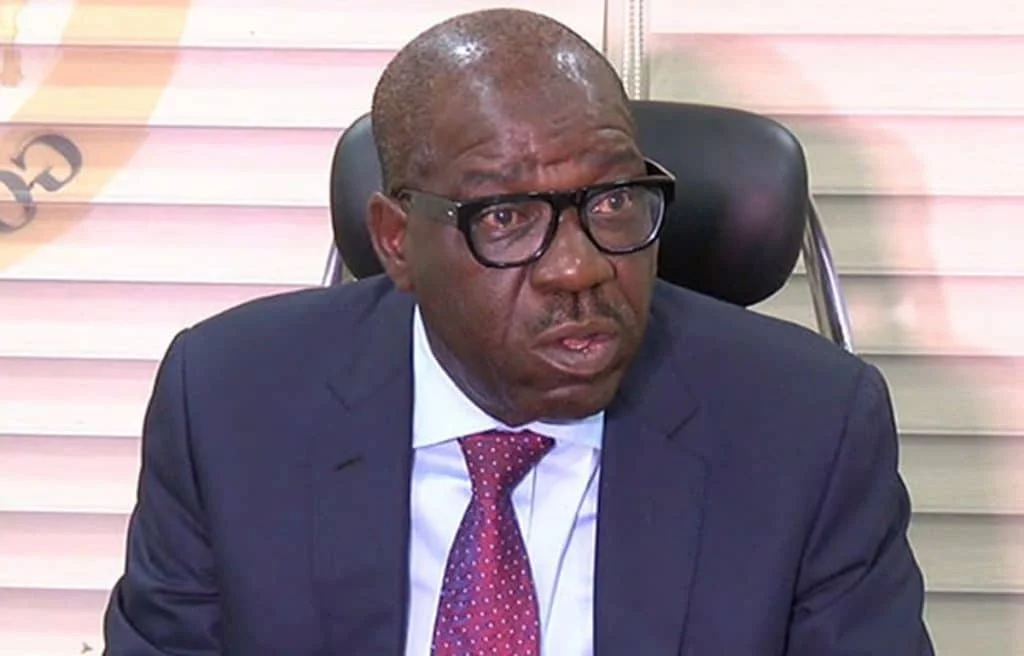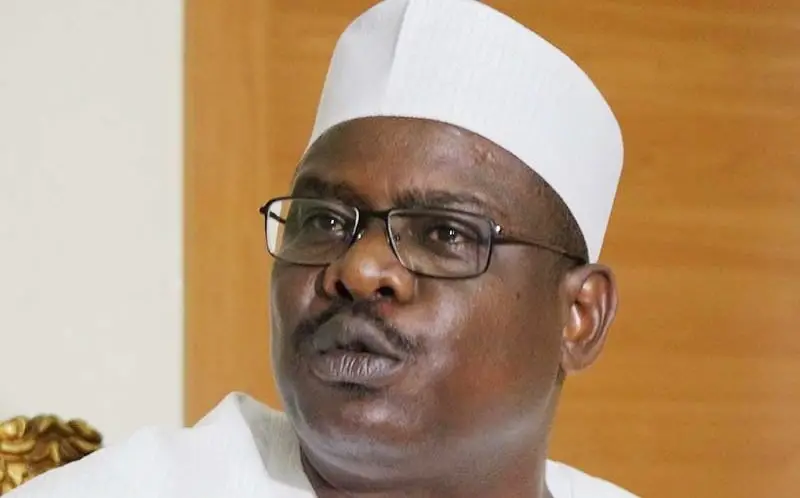News
Kidnapped A’Ibom NYSC Members: Fear Grips Parents As Abductors’ Ransom Deadline Expires Today

Helpless families of National Youth Service Corps, NYSC, members from Akwa Ibom State, abducted in Zamfara State by gunmen over two weeks ago on their way to Orientation Camp in Sokoto State are gripped in fear of bad news, as the ultimatum the abductors gave for ransom expires today.
Speaking to Vanguard in Uyo, some families of eight victims still in captivity disclosed receiving calls from the abductors to send a ransom balance of N8 million latest today or expect bad news having earlier paid N5 million.
The latest development comes even as the Akwa Ibom State Government remains mum on the pains faced by the victims and their families two weeks after.
A relative of one of the victims narrated to Vanguard in confidence: “The young man left Akwa Ibom on August 16, 2023, with other corps members, and on August 17 night, they kidnapped them on their way to Sokoto.
READ ALSO: 2,565 Zamfara Varsity Students Drop Out Over Tuition Fees Hike – Union Leader
“On Friday, they contacted us. That first day, those people that kidnapped them demanded N4 million ransom from each of them (victims). They were eight NYSC members and the AKTC driver made them nine.
“The mother of the boy (name withheld) started crying because as a poor widow and petty trader, she could not afford such amount of money. The following day, Saturday, the abductors contacted us again and decided all parents of their victims meet to jointly raise N10 million.
“The families have been able to raise N5 million and sent to them. It would have remained N5 million, but they later requested money for three power bikes. And we have checked each powerbike cost N1 million plus.
“They spoke to us again Monday this week to give till Wednesday, September 6, as deadline for the remaining amount to be paid. So, we are looking at N8 million, including money for the powerbikes. And they warned that we should try and meet the deadline, if we don’t want to hear bad news.”
READ ALSO: Electronic Transmission Of Election Results Optional, Court Rules
Vanguard source noted that since all family members of the victims had protested to the state House of Assembly over their plight, government has not made any effort to assist in ensuring release of the victims.
Another relation of the kidnap victims, who simply identified himself as Mfon, lamented that since they were given today’s deadline by the abductors, they have been restless.
He said: “We have been moving around to see people who can assist us in anyway to raise this amount. Just this morning, village head and the wife gave us N300,000 to support us.
“We are still looking for N700,000 to make N1 million on our part because each of the families must contribute N1 million to complete the outstanding N8 million ransom.”
News
BREAKING: Anthony Joshua Involved In Road Accident

A renowned global boxer Anthony Joshua has been involved in a road accident on Monday in Makun, Ogun State.
The was said to have occurred along a busy highway of the Lagos-Ibadan expressway.
The vehicle carrying Joshua reportedly collided with another car under circumstances that are still being investigated.
READ ALSO:Another Accident On Otedola Bridge Causes Fresh Traffic Disruption In Lagos
The said I said to have sustained minor injuries, saying that two people died on the spot.
Meanwhile, fans have flooded social media with messages of concern, while local authorities continue to investigate the cause of the crash.
News
Ex-Edo Gov Obaseki Reacts As His Cousin Is Beaten, Stripped

The immediate past governor of Edo State, Godwin Obaseki, has reacted to the attack on Don Pedro Obaseki, the Chief Executive Officer of Osamudia Farms.
Don Pedro Obaseki, a cousin to the immediate past governor was attacked at Uwa Primary School where he went to play football.
In a viral video, Pedro Obaseki is seen kneeling at the Oba of Benin Palace gate, before he was dragged into the palace where he was asked to crawl before some chief walked up to the scene and rescued him.
Reacting, the ex-Edo governor described the act as a “grave violation of fundamental human rights and a reckless disregard for the rule of law.”
READ ALSO: Obaseki Beaten, Stripped In Edo
Obaseki, said: “I call on security agencies to immediately investigate this matter thoroughly and transparently, identify those responsible for this barbaric act and ensure they are held accountable in accordance with the law.
“A situation where thugs and non-state actors appear to freely take the law into their own hands on behalf of high-profile individuals and those in positions of authority can only result in one outcome, a degeneration into a state of anarchy, which will do no one no good.”
He further charged, “I urge human rights organizations, civil society groups, and all well-meaning Nigerians to lend their voices and speak out firmly against this injustice and gross violation of human rights.”
News
New Tax Laws: Suspend January 2026 Implementation — Senator Ndume Tells Tinubu

Former Senate Leader, Ali Ndume has appealed to President Bola Ahmed Tinubu to suspend the January 1, 2026, implementation of the country’s new tax laws amid growing controversy.
The federal lawmaker made the appeal in a statement he issued on Wednesday in Abuja.
This comes as the Nigerian Bar Association demanded the suspension of the implementation.
Recall that a member of the House of Representatives, Abdussamad Dasuki, had last week called the Parliament’s attention to alleged alteration to the tax laws.
READ ALSO:FIRS Confirms NIN As Tax ID
Chairman of the Presidential Fiscal Policy and Tax Reforms Committee, Taiwo Oyedele, in an interview on Arise Television on Wednesday, called for calm over claims of alterations in tax laws and urged Nigerians to allow lawmakers to complete their investigation before drawing conclusions.
Speaking on the ongoing controversy about the tax laws, Ndume noted that proceeding with the implementation without getting to the root of the alleged forgery will create a legitimacy challenge for the tax laws.
His statement read, “With the controversy surrounding it, the President should constitute a team to verify the veracity of the claim and act accordingly.
“As the responsive leader that he has always been, he should look at it to find out if the copy that was signed and the claim of alterations are genuine so that he will do the needful to bring the controversy to rest.
READ ALSO:US Threatens To Sanction Countries That Vote For Shipping Carbon Tax
“If not, the controversy will continue.” That is to say, the tax law will not be implemented, because you can’t build on nothing.
“So, Mr. President should suspend the implementation until the issues are resolved because so many civil society organizations, the Arewa Community, and the Nigerian Bar Association are saying that he should withdraw the tax law and investigate the allegation of forgery.”
“Therefore, Mr President should get to the root of the allegation of forgery. The small committee that will be set up should look into it while the House of Representatives does its own.”

 News5 days ago
News5 days agoJUST IN: Kano Lawmaker, Sarki Aliyu Daneji, Dies Hours After Colleague’s Passing

 News5 days ago
News5 days agoFULL LIST: Churches That Don’t Celebrate Christmas

 Headline3 days ago
Headline3 days agoJUST IN: US Forces Bomb Terrorists Camps In Nigeria

 News4 days ago
News4 days agoOkpebholo Slams ₦25bn Libel Suit On Edo PDP Chairman

 Headline3 days ago
Headline3 days agoUS Dept Of War Shares Video Of Air Strikes In Nigeria

 Entertainment5 days ago
Entertainment5 days agoAFCON 2025: Davido Wins $96,000 After Super Eagles Beat Tanzania

 News5 days ago
News5 days ago7 Health Risks Of Owning A Cat

 News5 days ago
News5 days agoSheikh Gummi Sues Two Over Alleged False Facebook Publication

 Headline5 days ago
Headline5 days agoCoup: Guinea-Bissau Junta Releases Six Held Opposition Politicians

 News3 days ago
News3 days agoPHOTOS: SGF George Akume Weds Ooni’s Ex-Queen
























